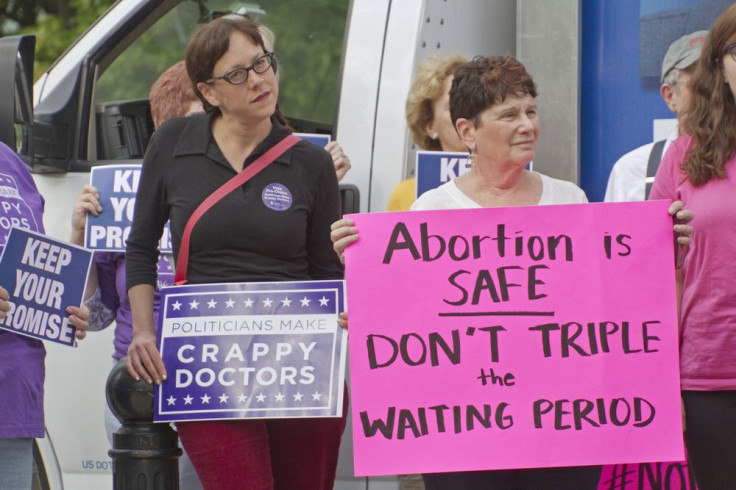Fewer Anti-Abortion Laws Still Leave Obstacles For Pregnant Women In Developed Countries

Even with reduced anti-abortion legislation, women in other parts of the world still struggle with abortion access, finds a new study published in the Journal of Family Planning and Reproductive Health Care.
Researchers systematically reviewed prior data collected between 1993 and 2014 in order to see what exactly helps and hinders access to abortion services during the first three months of pregnancy in developed countries. A total of 2,511 articles were reviewed, in which both perspectives from pregnant women and health care providers were included. And out of these articles, 38 focused primarily on early abortion.
While fewer legal hurdles benefit women, the data showed pregnant women still face others’ moral opposition to abortion, as well as a lack of adequate training for providers (assuming providers are willing to perform the procedure at all). Staff had also harassed women inquiring about the procedure — and in rural areas, there’s a general lack of information about these services.
“Women living in rural areas, who travel long distances to services, who are on low incomes or from minority groups experience particular inequities when they seek access to abortion care,” researchers explained. “In this review, travel and waiting for appointments were the main impediments for women to accessing timely abortion…an international trend where abortion services are concentrated in metropolitan areas, with fewer doctors.”
Researchers cited the World Health Organization’s (WHO) official recommendations for early abortion involve a combination of two drugs, otherwise known as a medical abortion. The WHO actually lists the two drugs, mifepristone and misoprostol, as essential medicine in order to increase women’s access. However, as the present study shows, this access still varies among countries. For example, researchers found it’s used widely in Sweden, but it’s not licensed in Canada.
According to the study, what would improve access is increased training, particularly among mid-level practitioners, and just an increase in services providing women with comprehensive information. And then of course, more affordable services, which slowly but surely organizations are working to achieve.
“For most women, an unplanned pregnancy and the decision to have an abortion constitutes a stressful situation, yet contrary to public perception, abortion is not significantly associated with short- or long-term psychological distress,” researchers concluded. “However, it is essential that women making these decisions should not be subject to unnecessary hardship as a result of their choice….increased ease of access to coordinated services that reduce inequalities, are sensitive and responsive to women's needs, and reduce stigma and shame.”
Source: Doran F, and Nancarrow S. Barriers and facilitators of access to first-trimester abortion services for women in the developed world: a systematic review. Journal of Family Planning and Reproductive Health Care. 2015.



























